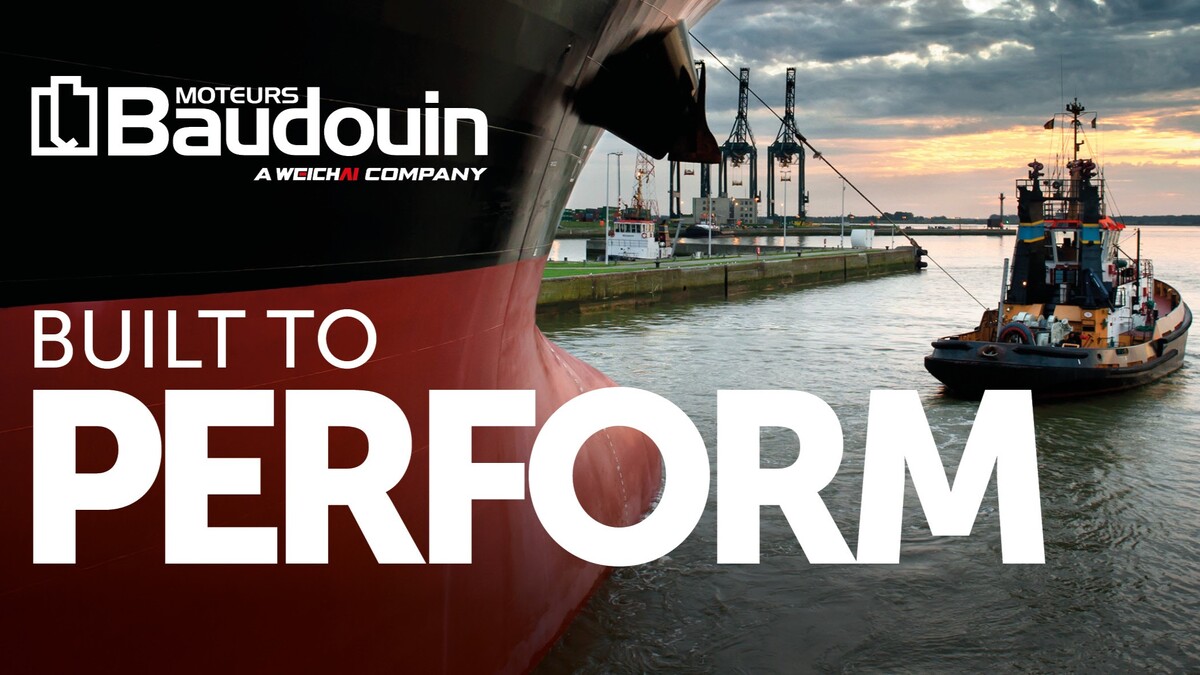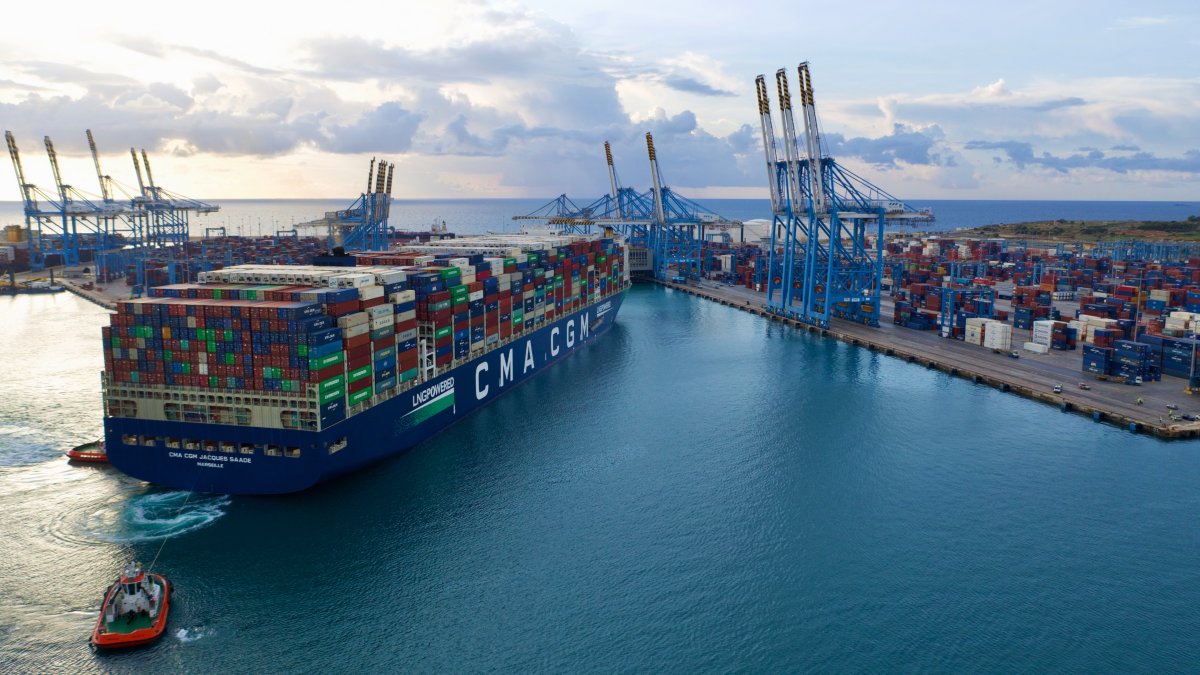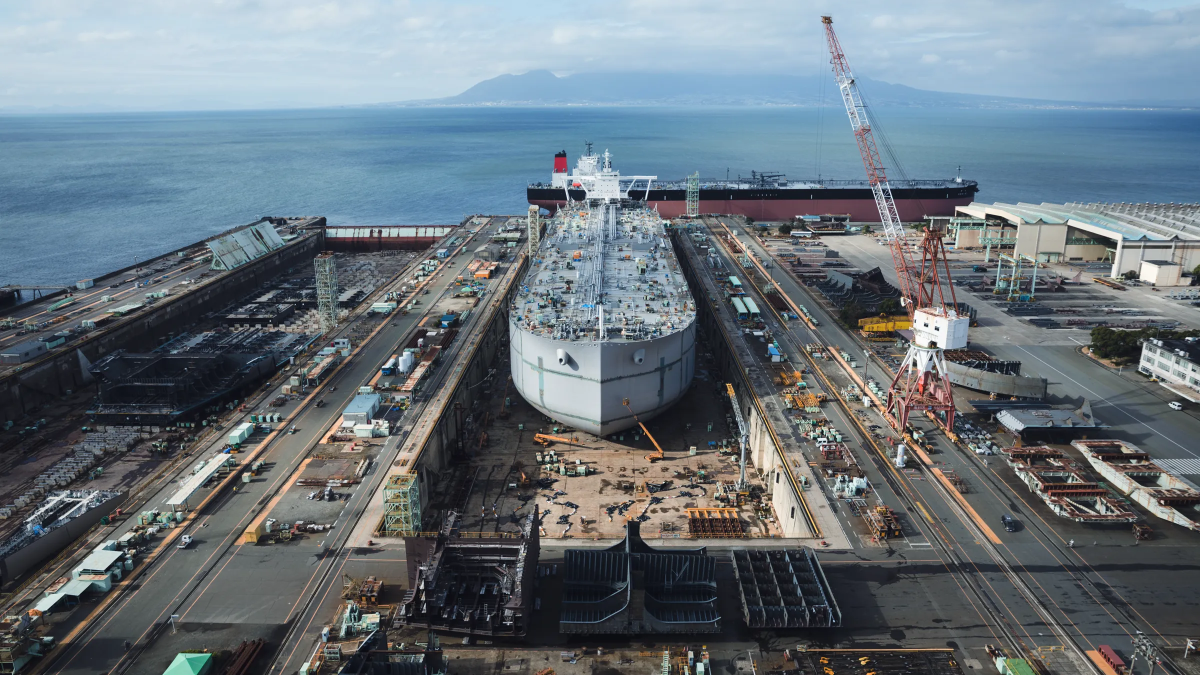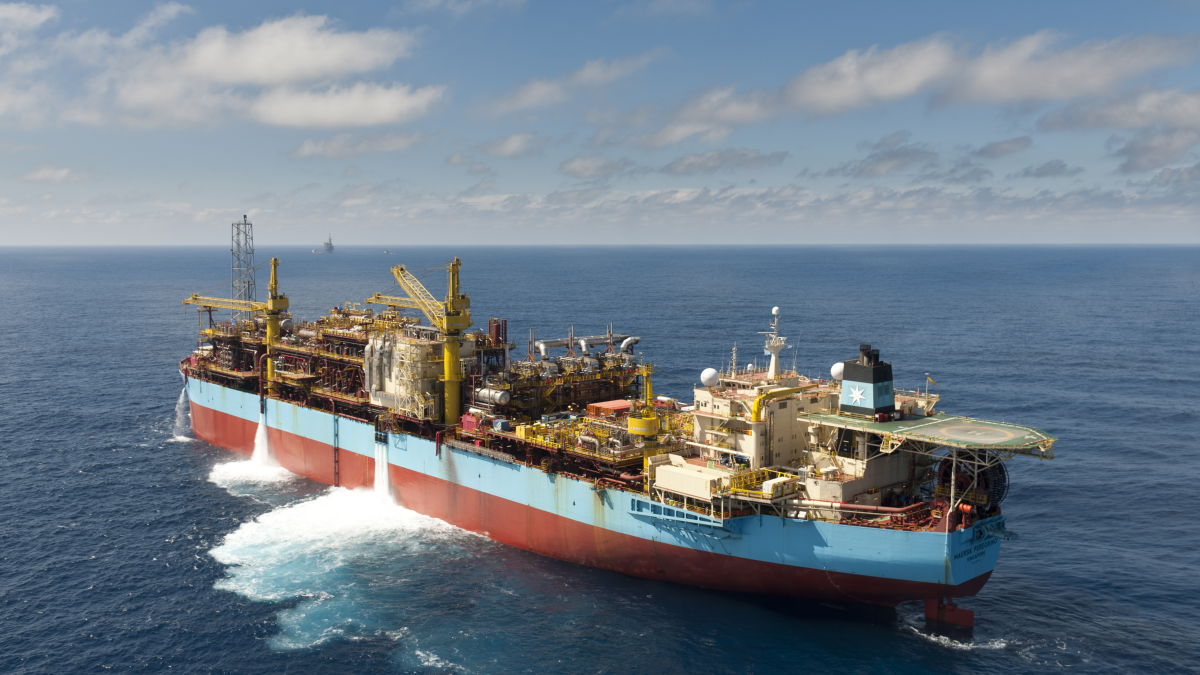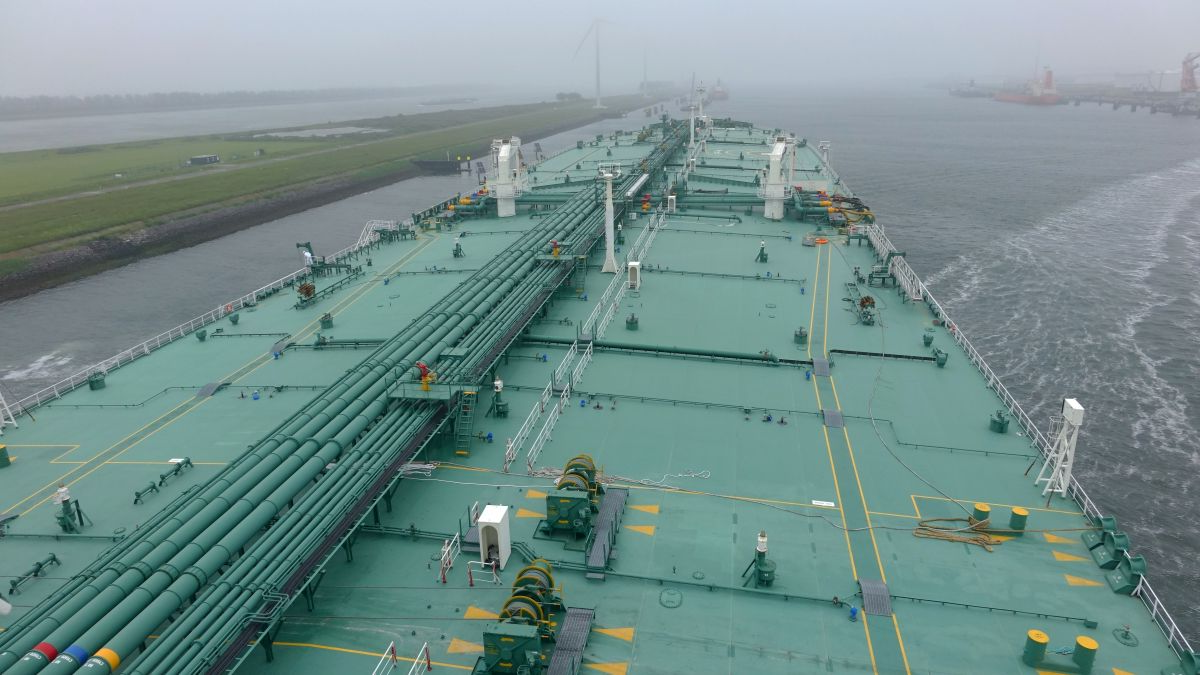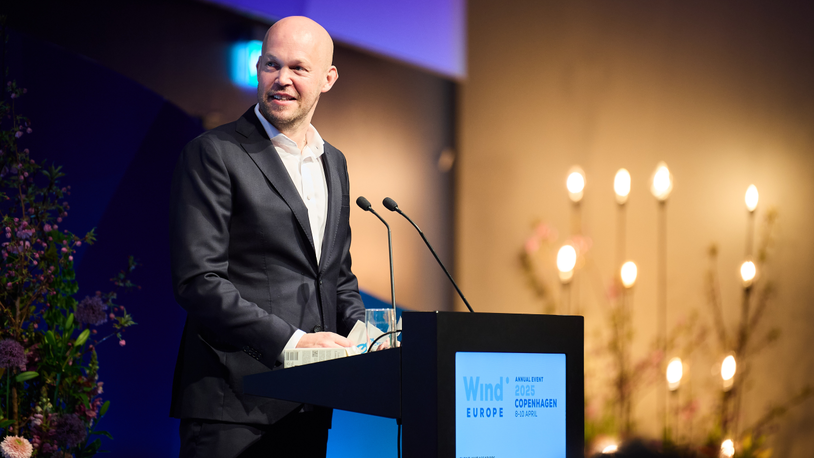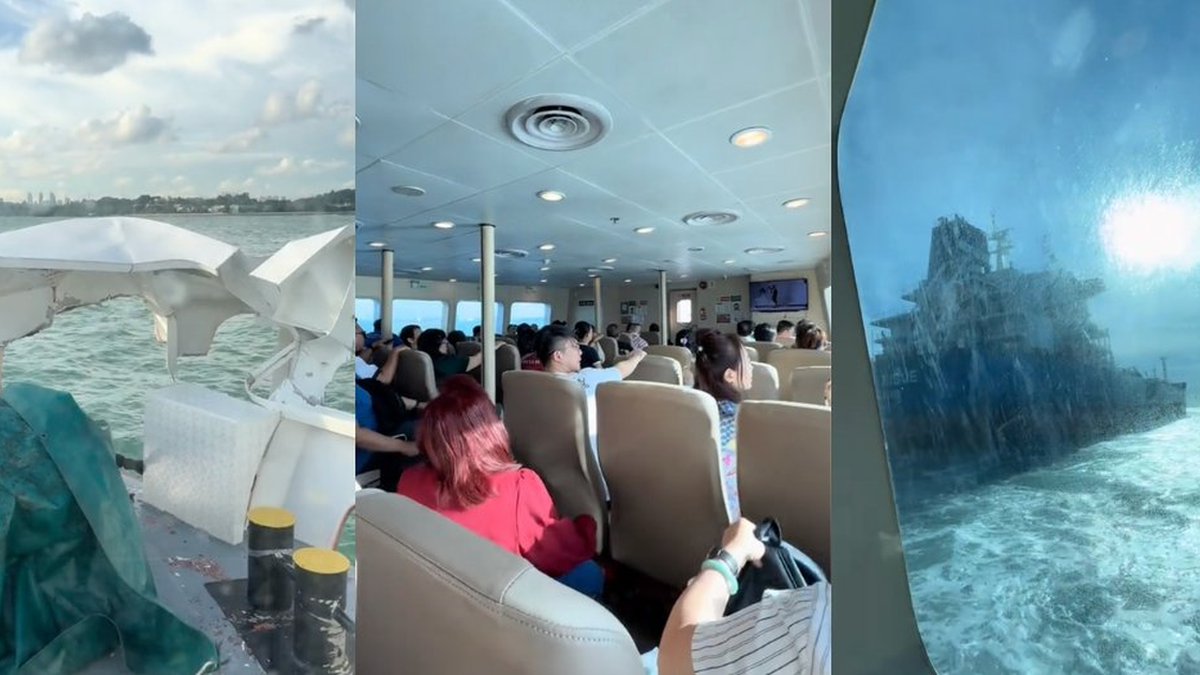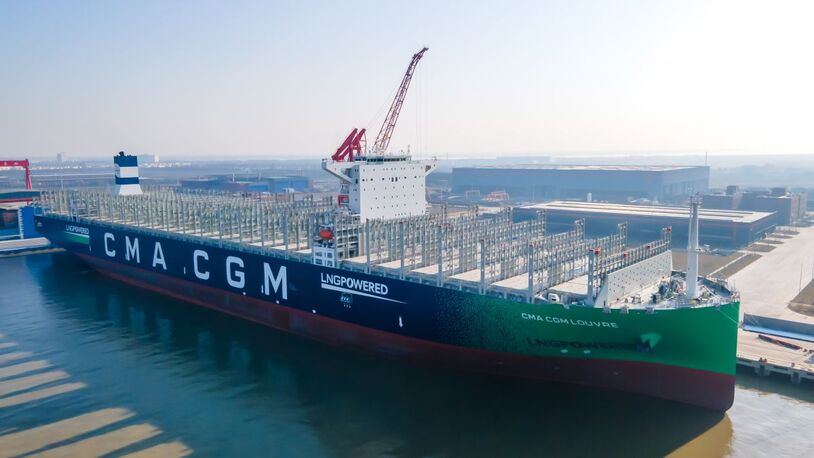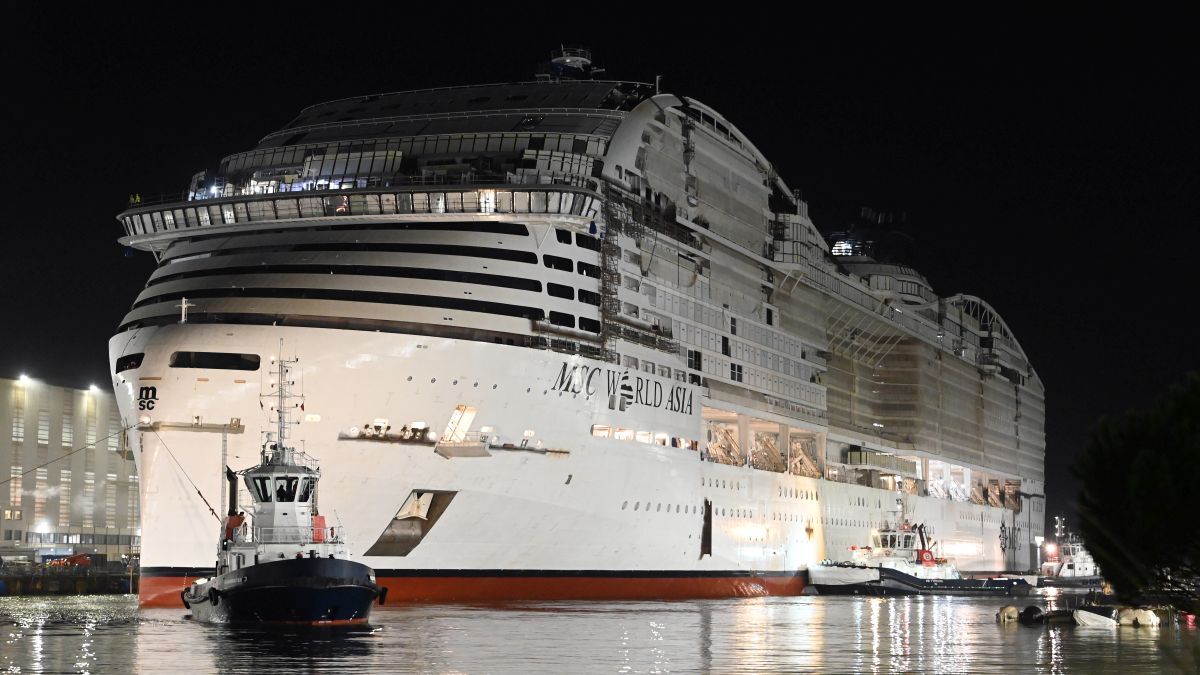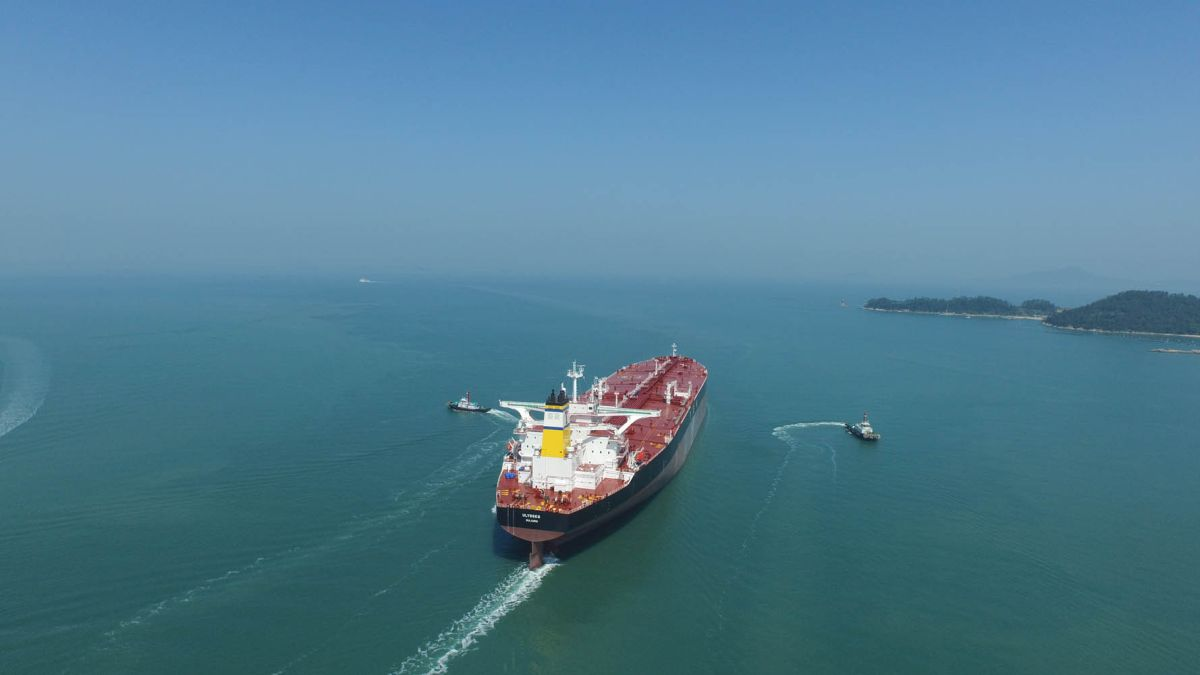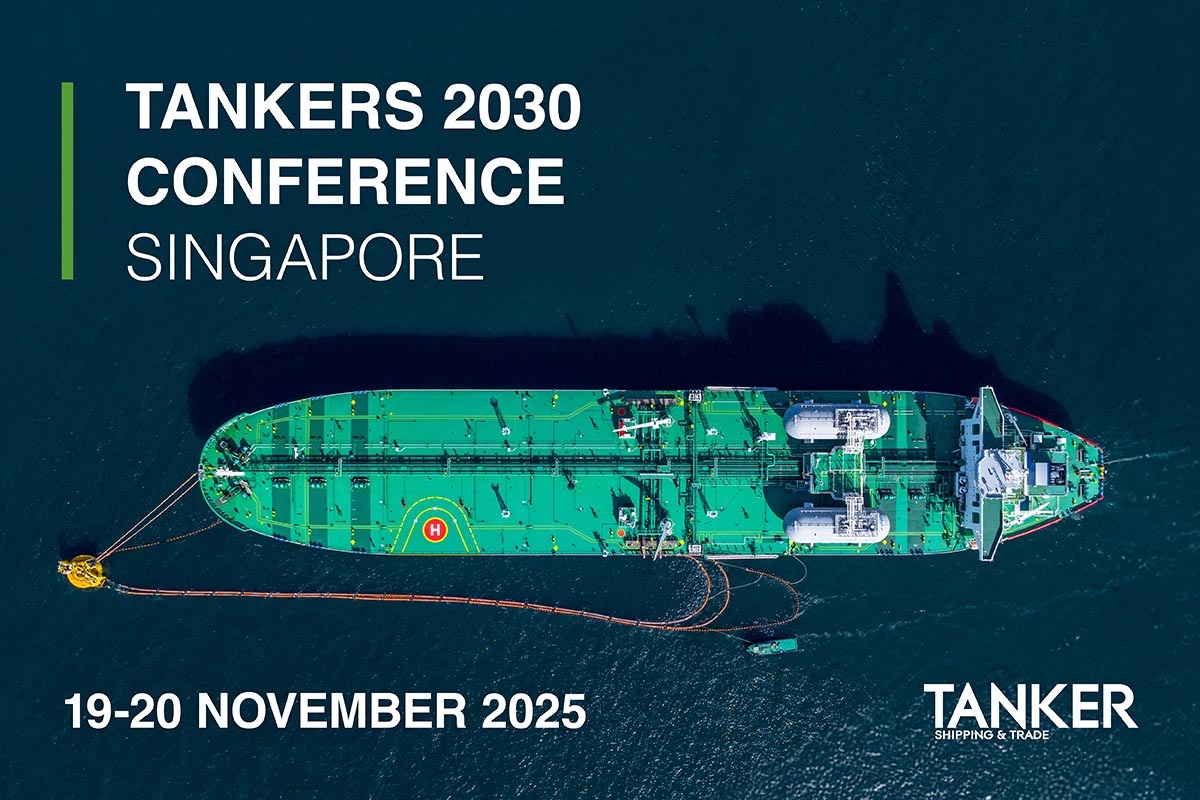Business Sectors
Contents
Register to read more articles.
CMA CGM nears order for up to 10 LNG dual-fuel 22,000-TEU ships
French shipping giant CMA CGM is reportedly close to finalising a major newbuilding deal in China for a series of ultra-large container ships (ULCS)
Shipbroking and market sources indicate that the liner operator has signed a letter of intent (LoI) with Dalian Shipbuilding Industry Co (DSIC), a subsidiary of China State Shipbuilding Corp, for six firm plus four optional 22,000-TEU ships. Several brokers added the vessels are expected to be equipped with LNG dual-fuel engines.
While pricing details remain undisclosed, a recent order by MSC at China’s Hengli Heavy Industry for similar LNG dual-fuel 22,000-TEU units was reportedly placed at about US$220M per ship, suggesting CMA CGM’s order will be in the same range.
According to Alphaliner, CMA CGM operates a fleet of 688 vessels with a total capacity of more than 4M TEU, representing around a 12% global market share. The company is also pursuing a newbuilding programme comprising 106 ships, totalling 1.5M TEU.
In its Q2 earnings report released in late July, the French carrier disclosed that two 23,000-TEU LNG-powered vessels had recently entered service. CMA CGM expects its dual-fuel fleet to reach 162 vessels by 2029, including 24 powered by methanol. The group has also expanded its LNG bunkering capabilities through a joint venture with TotalEnergies in Rotterdam.
Newbuilding trends
Clarksons’ latest monthly update shows that 246 container vessels, totalling 2.5M TEU, were ordered between January and July 2025 – more than twice the 10-year average in capacity terms. Analysts note the sector has been leading the uptake of alternative fuels, with 76% of new capacity ordered this year featuring similar capabilities.
Larger container ships continue to dominate the orderbook. According to Xclusiv Shipbrokers, orderbook-to-fleet ratios currently stand at 30% for neo-Panamax, 26% for VLCS, and 75% for ULCS, measured in TEU.
Overall, the orderbook-to-fleet ratio is at 31% in TEU terms, compared with 22% during the same period in 2024. Xclusiv further reports the average age of the global fleet is 14 years, with nearly half (47%) of vessels older than 16 years.
Sign up for Riviera’s series of technical and operational webinars and conferences:
-
Register to attend by visiting our events page.
-
Watch recordings from all of our webinars in the webinar library.
Related to this Story
Events
International Bulk Shipping Conference 2025
Tankers 2030 Conference
Maritime Navigation Innovation Webinar Week
© 2024 Riviera Maritime Media Ltd.

